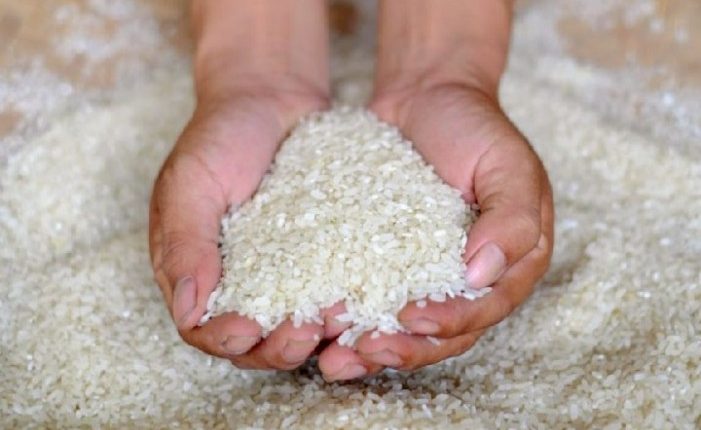The Government’s Quick Steps to Secure Rice Reserve Stocks Are Worth Appreciating
The government, through the National Food Agency (Bapanas) and Perum Bulog, has received the entry of 3,500 tons of imported rice originating from Cambodia. This import policy should be appreciated because it strengthens the Government’s food rice reserves. With rice imports, it is hoped that the Government’s rice stock reserves will be safe until 2024 so that it can help maintain rice price stability in society.
Director of Supply Chain and Public Services of the Public Company (Perum) of the Logistics Affairs Agency (Bulog), Mokhamad Suyamto, said that the government’s rice stock reserves controlled by Bulog have been confirmed to be safe until next year. This is inseparable from the increase in rice imports carried out by the Government of 1.5 million tons.
In the midst of this difficult situation, Suyamto added that his party had succeeded in obtaining a contract for 1 million tons of rice from the Government’s additional quota for rice import assignments. Imports will continue to be carried out in accordance with domestic distribution needs so that there is no buildup in Bulog warehouses.
The rice stock currently in the Bulog warehouse is 1.45 million tons. Additional imports from the Government to neighboring countries will strengthen the need for rice distribution until next year.
Thailand, Vietnam, Pakistan and Myanmar are the countries with the largest rice production, so the Government is suppressing import contracts in these four countries. Apart from that, the Government has also collaborated with India, Cambodia and other countries that allow and meet the requirements to reduce rice import contracts. Suyamto said that regarding the country of origin of imports, his party would continue to intensively monitor the rice import process with these countries as well as monitor the current price of rice.
The entry of 3,500 tons of rice from Cambodia is a quick step for the Government to strengthen rice food reserves. The target is that a total of 10,000 tons of Cambodian rice will enter Indonesia in stages. This influx of rice imports is one of the results of President Joko Widodo’s meeting with the Prime Minister (PM) of Cambodia, Hun Manet on September 4 2023, where they mutually agreed on food security.
There are a total of 140 containers from Cambodia with a cargo of 25 tons of rice per container entering Indonesia. With a total quantity of 3,500 tons of rice from Cambodia, samples were taken for inspection by the Indonesian Quarantine Agency to ensure aspects of food safety and quality.
Head of the National Food Agency (Bapanas), Arief Prasetyo Adi, said that it was the first time that Cambodia sent rice after a Memorandum of Understanding (MoU) existed 11 years ago, and it was in the era of the Jokowi government that it was able to execute the MoU. As a result, currently rice from Cambodia can enter Indonesia with very good quality.
Arief Prasetyo Adi also added that this rice stock is only for the Government Food Reserve (CPP) which must be owned by Perum Bulog. This is in line with President Jokowi’s direction asking for rice food assistance for the community to continue until the rice stock in Bulog is safe until next year with a minimum stock size of 1 million tons of rice.
The arrival of rice stocks from abroad, especially Cambodia, is a government step that has been considered carefully and comprehensively. Arief ensured that the use of imported rice was only intended for government programs for market intervention and for social assistance to the community.
Of course, domestic food availability must be prioritized and domestic production must be prioritized. However, Bapanas has seen and calculated this year’s food balance and decided to procure (import) from abroad so that the availability of rice in Indonesia does not experience a shortage.
Meanwhile, Public Company (Perum) Bulog, Central Java Regional Office, has received 7,000 tonnes of rice import allocation from Cambodia provided by the Central Government. Head of the Central Java Bulog Regional Office, Akhmad Kholisun, said the total imports from Cambodia were 10,000 tons of rice. Of this amount, 3,000 tons are allocated for North Sumatra, while the rest for Central Java via Tanjung Mas Port.
This rice from Cambodia is part of the remaining imported rice quota to replenish national rice reserves, because this rice can be used for food assistance for Beneficiary Families (KPM) or for the Food Price Supply Stability Program (SPHP) which can be sold directly to consumers.
Seeing this, Arief emphasized that ahead of the elections the Government’s focus was to maintain existing food stocks. This is done to prevent food insecurity in a number of areas, not only in Central Java. Apart from that, his party together with Bulogs in each region will maintain stocks above one million tons to avoid price increases.
That way, the public does not need to worry because the Government through Bulog has taken swift steps to ensure the need and availability of rice in the community at affordable prices. The government will also consistently carry out continuous monitoring so that rice stocks and prices remain under control.
